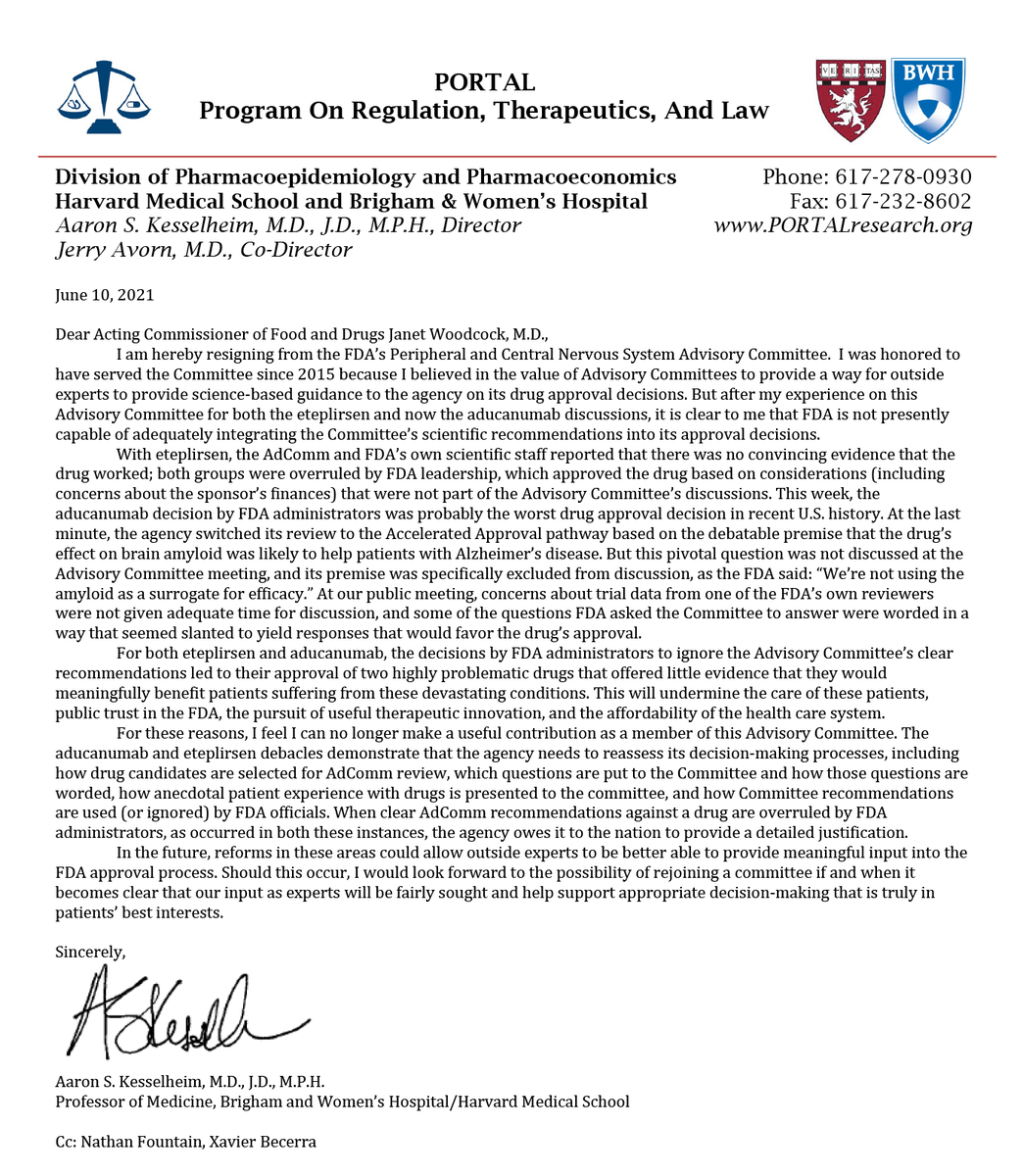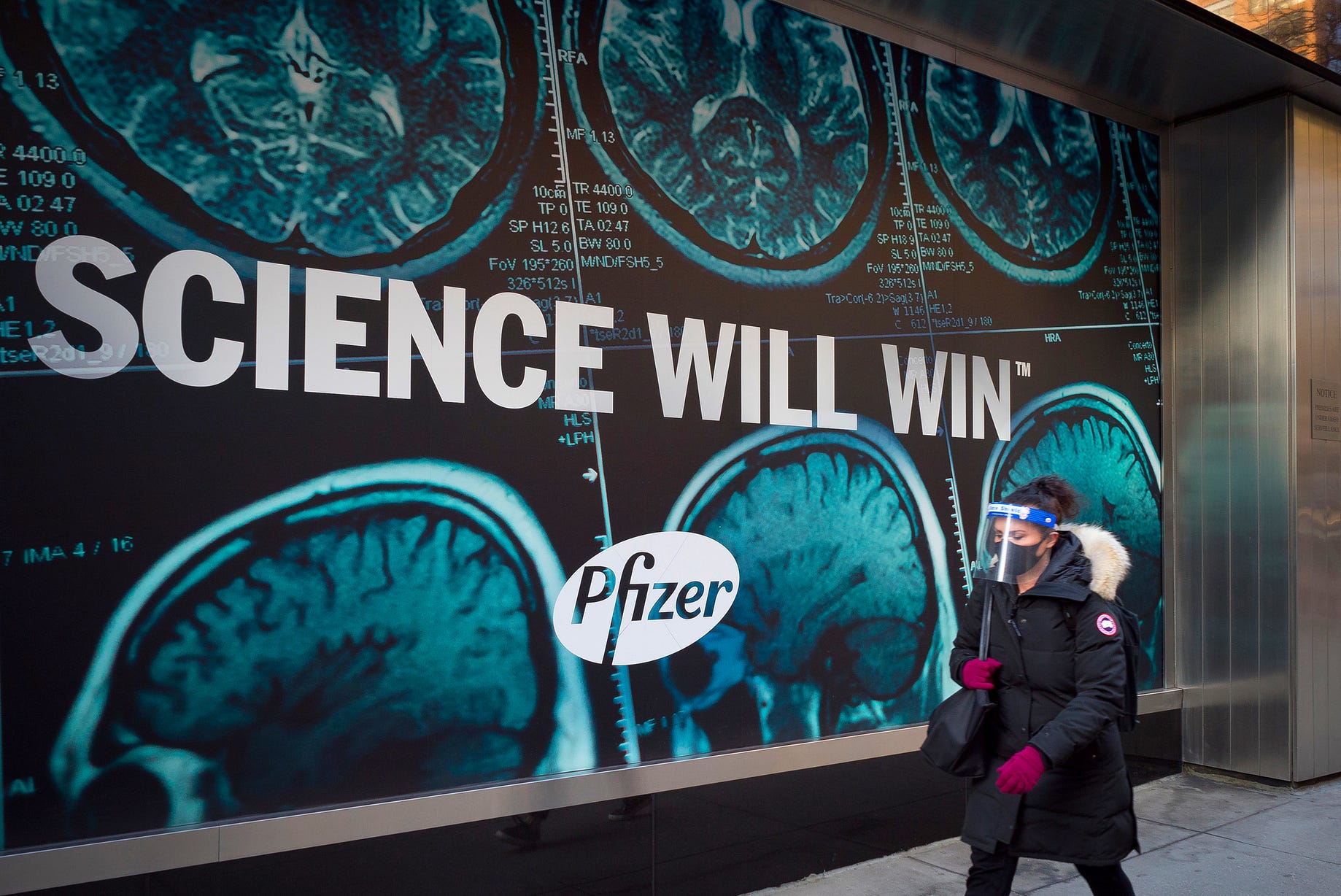.
I'm not in a position to copy/paste the entire piece, but it's worth reading in full.
Lots of embedded links at source. A number of excerpts:
While big pharma lobbying can take several different forms, these companies tend to target their contributions to senior legislators in Congress — you know, the ones they need to keep in their corner, because they have the power to draft healthcare laws. Pfizer has outspent its peers in six of the last eight election cycles, coughing up almost $9.7 million. During the 2016 election, pharmaceutical companies gave more than $7 million to 97 senators at an average of $75,000 per member. They also contributed $6.3 million to president Joe Biden’s 2020 campaign. The question is: what did big pharma get in return?
...
ALEC’s Off-the-Record Sway
To truly grasp big pharma’s power, you need to understand how The American Legislative Exchange Council (ALEC) works. ALEC, which was founded in 1973 by conservative activists working on Ronald Reagan’s campaign, is a super secretive pay-to-play operation where corporate lobbyists — including in the pharma sector — hold confidential meetings about “model” bills. A large portion of these bills is eventually approved and become law.
A rundown of ALEC’s greatest hits will tell you everything you need to know about the council’s motives and priorities. In 1995, ALEC promoted a bill that restricts consumers’ rights to sue for damages resulting from taking a particular medication. They also endorsed the Statute of Limitation Reduction Act, which put a time limit on when someone could sue after a medication-induced injury or death. Over the years, ALEC has promoted many other pharma-friendly bills that would: weaken FDA oversight of new drugs and therapies, limit FDA authority over drug advertising, and oppose regulations on financial incentives for doctors to prescribe specific drugs. But what makes these ALEC collaborations feel particularly problematic is that there’s little transparency — all of this happens behind closed doors.
Congressional leaders and other committee members involved in ALEC aren’t required to publish any records of their meetings and other communications with pharma lobbyists, and the roster of ALEC members is completely confidential. All we know is that in 2020, more than two-thirds of Congress — 72 senators and 302 House of Representatives members — cashed a campaign check from a pharma company.
...
The number of clinical trials funded by the pharmaceutical industry has been climbing every year since 2006, according to a John Hopkins University report, while independent studies have been harder to find. And there are some serious consequences to these conflicts of interest.
...
Where the lines get really blurry is with “ghostwriting.” Big pharma execs know citizens are way more likely to trust a report written by a board-certified doctor than one of their representatives. That’s why they pay physicians to list their names as authors — even though the MDs had little to no involvement in the research, and the report was actually written by the drug company. This practice started in the ’50s and ’60s when tobacco execs were clamoring to prove that cigarettes didn’t cause cancer (spoiler alert: they do!), so they commissioned doctors to slap their name on papers undermining the risks of smoking.
It’s still a pretty common tactic today: more than one in 10 articles published in the NEJM was co-written by a ghostwriter. While a very small percentage of medical journals have clear policies against ghostwriting, it’s still technically legal —despite the fact that the consequences can be deadly.
Case in point: in the late ’90s and early 2000s, Merck paid for 73 ghostwritten articles to play up the benefits of its arthritis drug Vioxx. It was later revealed that Merck failed to report all of the heart attacks experienced by trial participants. In fact, a study published in the NEJM revealed that an estimated 160,000 Americans experienced heart attacks or strokes from taking Vioxx. That research was
conducted by Dr. David Graham, Associate Director of the FDA’s Office of Drug Safety, who understandably concluded the drug was not safe. But the FDA’s Office of New Drugs, which not only was responsible for initially approving Vioxx but also regulating it, tried to sweep his findings under the rug.
...
But all that is just the tip of the iceberg. If you’d like to dive a little further down the rabbit hole — and I’ll warn you, it’s a deep one — a quick Google search for “big pharma lawsuits” will reveal the industry’s dark track record of bribery, dishonesty, and fraud.
In fact, big pharma happens to be the biggest defrauder of the federal government when it comes to the False Claims Act, otherwise known as the “Lincoln Law.” During our interview, Panara told me she has friends still working for big pharma who would be willing to speak out about crooked activity they’ve observed, but are too afraid of being blacklisted by the industry. A newly proposed update to the False Claims Act would help to protect and support whistleblowers in their efforts to hold pharmaceutical companies liable, by helping to prevent that kind of retaliation and making it harder for the companies charged to dismiss these cases. It should come as no surprise that Pfizer, AstraZeneca, Merck, and a flock of other big pharma firms are currently lobbying to block the update. Naturally, they wouldn’t want to make it any easier for ex-employees to expose their wrongdoings, potentially costing them billions more in fines.
...
As of the day I’m writing this, about 64% of Americans are fully vaccinated, and 76% have gotten at least one dose. The FDA has repeatedly promised “full transparency” when it comes to these vaccines. Yet in December of 2021, the FDA asked for permission to wait 75 years before releasing information pertaining to Pfizer’s COVID-19 vaccine, including safety data, effectiveness data, and adverse reaction reports. That means no one would see this information until the year 2096 — conveniently, after many of us have departed this crazy world. To recap: the FDA only needed 10 weeks to review the 329,000 pages worth of data before approving the EUA for the vaccine — but apparently, they need three-quarters of a century to publicize it.
In response to the FDA’s ludicrous request, PHMPT — a group of over 200 medical and public health experts from Harvard, Yale, Brown, UCLA, and other institutions — filed a lawsuit under the Freedom of Information Act demanding that the FDA produce this data sooner. And their efforts paid off: U.S. District Judge Mark T. Pittman issued an order for the FDA to produce 12,000 pages by Jan. 31, and then at least 55,000 pages per month thereafter. In his statement to the FDA, Pittman quoted the late John F. Kennedy: “A nation that is afraid to let its people judge the truth and falsehood in an open market is a nation that is afraid of its people.”
As for why the FDA wanted to keep this data hidden, the first batch of documentation revealed that there were more than 1,200 vaccine-related deaths in just the first 90 days after the Pfizer vaccine was introduced. Of 32 pregnancies with a known outcome, 28 resulted in fetal death. The CDC also recently unveiled data showing a total of 1,088,560 reports of adverse events from COVID vaccines were submitted between Dec. 14, 2020, and Jan. 28, 2022. That data included 23,149 reports of deaths and 183,311 reports of serious injuries. There were 4,993 reported adverse events in pregnant women after getting vaccinated, including 1,597 reports of miscarriage or premature birth. A 2022 study published in JAMA, meanwhile, revealed that there have been more than 1,900 reported cases of myocarditis — or inflammation of the heart muscle — mostly in people 30 and under, within 7 days of getting the vaccine. In those cases, 96% of people were hospitalized.
“It is understandable that the FDA does not want independent scientists to review the documents it relied upon to license Pfizer’s vaccine given that it is not as effective as the FDA originally claimed, does not prevent transmission, does not prevent against certain emerging variants, can cause serious heart inflammation in younger individuals, and has numerous other undisputed safety issues,” writes Aaron Siri, the attorney representing PHMPT in its lawsuit against the FDA.
Siri told me in an email that his office phone has been ringing off the hook in recent months.
“We are overwhelmed by inquiries from individuals calling about an injury from a COVID-19 vaccine,” he said.
By the way — it’s worth noting that adverse effects caused by COVID-19 vaccinations are still not covered by the National Vaccine Injury Compensation Program. Companies like Pfizer, Moderna, and Johnson & Johnson are protected under the Public Readiness and Emergency Preparedness (PREP) Act, which grants them total immunity from liability with their vaccines. And no matter what happens to you, you can’t sue the FDA for authorizing the EUA, or your employer for requiring you to get it, either. Billions of taxpayer dollars went to fund the research and development of these vaccines, and in Moderna’s case, licensing its vaccine was made possible entirely by public funds. But apparently, that still warrants citizens no insurance. Should something go wrong, you’re basically on your own.
Much more at link.



